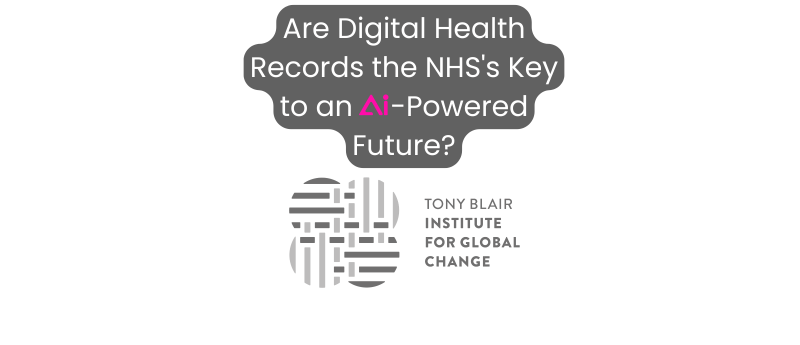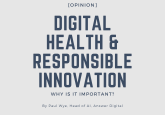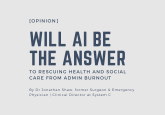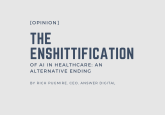Are Digital Health Records the NHS’s Key to an AI-Powered Future?

The Tony Blair Institute for Global Change has released a new paper advocating for a comprehensive Digital Health Record (DHR) for every UK citizen, positioning it as a cornerstone for the National Health Service (NHS) in the emerging AI era.
The proposal, part of the Institute’s Future of Britain initiative, lays out a transformative vision to revitalize the NHS through data-driven innovation, emphasizing a shift from treatment to prevention, hospital-based care to community-based services, and analogue systems to digital platforms.
The NHS is currently grappling with significant challenges: long waiting lists, overburdened emergency services, and an infrastructure lagging in digital advancements.
According to the paper, a DHR would serve as the “single source of truth” for each citizen’s health data, currently fragmented across various providers. This unified digital record would facilitate streamlined care, especially in primary and community settings, and underpin the development and deployment of AI technologies in healthcare.
Wes Streeting, the Secretary of State for Health & Social Care, has underscored the need for radical reform. Speaking at the Future of Britain Conference, he outlined the “three big shifts” necessary to ensure the NHS’s sustainability:
-
- Treatment to Prevention
- Hospital-Based to Community-Based Care
- Analogue to Digital Operations
AI’s potential in healthcare is vast, from precision diagnostics to personalized treatment plans. However, the paper argues that these innovations hinge on the availability of robust and comprehensive health data. A DHR would not only support existing AI applications but also pave the way for new developments in clinical decision-making, operational efficiency, and public health.
The report points to international examples like Estonia, where 98% of citizens have a DHR, and nearly 20% have their genomes linked to their records. The UK, it argues, must follow suit to remain competitive and to ensure that the NHS can meet the needs of its population in the AI-driven future.
The paper highlights strong public backing for greater digital access to health records, with 89% of patients in favor of having a DHR. It also presents an economic case for prevention, citing research that a 20% reduction in the incidence of six major long-term conditions could boost the UK’s GDP by 0.74% within five years.
Despite the daunting challenge of overhauling the NHS’s digital infrastructure, the Institute asserts that such investment is essential. Without it, the report warns, the NHS will continue to struggle with inefficiencies and care failures, exacerbating current issues like long waits and suboptimal patient outcomes.
The Tony Blair Institute recommends that the government commit to establishing a DHR within one parliamentary term, supported by legislation to enforce data interoperability across all healthcare providers. Additionally, it calls for a dedicated unit within the Department of Health & Social Care to oversee the DHR’s development, ensuring it is both secure and accessible.
The paper concludes with a stark choice for the UK: either prepare the NHS for the AI era or risk its decline. A DHR, it argues, is not just a technological upgrade but a fundamental shift necessary to ensure that the NHS remains a world-leading health service in the 21st century.
You can read the full report here.
About the Tony Blair Institute for Global Change
The Tony Blair Institute for Global Change works to equip political leaders and governments to build open, inclusive, and prosperous societies in a globalized world. Through the Future of Britain initiative, the Institute seeks to provide actionable policy solutions that can drive progress in the age of AI and beyond.




